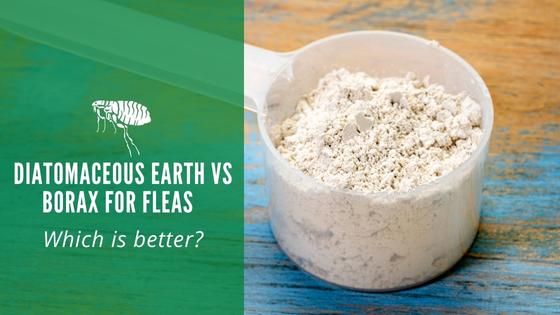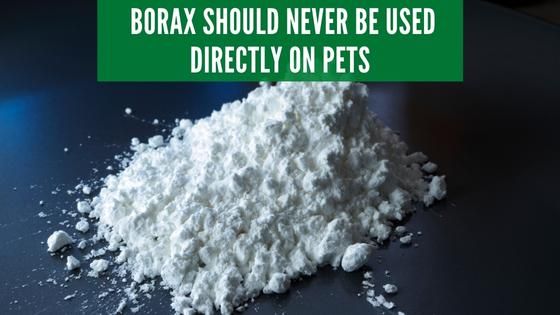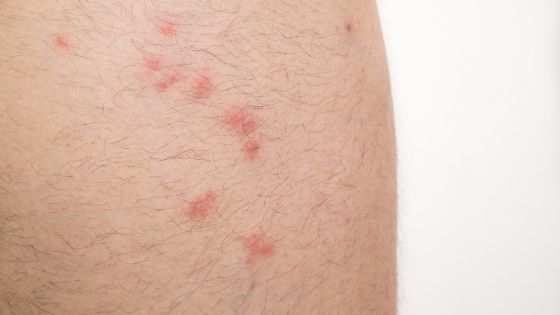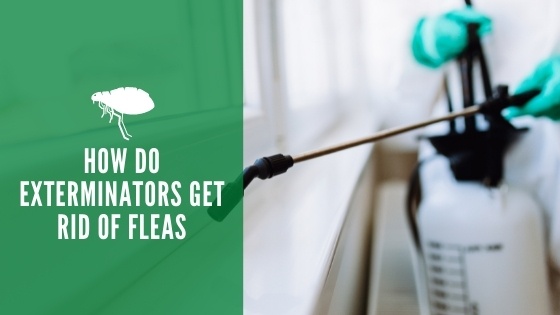Diatomaceous Earth vs Borax For Fleas

Fleas bite you and your pets. Your pets can develop anemia from a serious infestation. And it doesn’t help that they can end up throughout your house, causing quite an outbreak. Which one works better at addressing the problem, though, diatomaceous earth or borax?
What is Diatomaceous Earth?
Diatomaceous earth comes from fossilized diatoms, tiny creatures commonly referred to as plankton. While they’re a delicacy for some fish and crustaceans, when fossilized, they become an insecticide against certain pests, such as lice, mites, ants, centipedes, crickets, roaches, fleas, and silverfish, among others.
This material works in two ways. For one, it can reduce moisture in an area, making the location inhabitable for these pests. On the other hand, when the critter comes in direct contact with it, it acts as an abrasive and destroys its exoskeletal. As a result, they dry out.
It can take several days for this substance to work to target an infestation of any critters. In general, though, you can expect it to take at least three days to kill fleas and disrupt their lifecycle enough to eliminate them. And you may need multiple treatments for a larger infestation.
Fortunately, because this method addresses insects directly in a physical manner, you won’t have to worry about the pests building up a resistance to it.
How to Use Diatomaceous Earth for Fleas
You can use this substance on both your pet and objects.
Treating Your Pet
Ideally, you should address the flea problem on your pet first. If you have multiple cats or dogs, you’ll need to treat all of them. While you can choose to use dish soap, a flea shampoo, or even products from your veterinarian, you may treat them with diatomaceous earth instead.
To accomplish this, apply the diatomaceous earth to your pet’s coat. Be sure to keep the substance away from your pet’s eyes. And it helps to wear gloves during this process to avoid it drying out your hands.
https://www.youtube.com/watch?v=sXI7RCvf5Ng&ab_channel=ProTerra-TheDiatomaceousEarthGuys
Once applied, massage the powder into your pet’s skin. It helps to only apply a small amount at a time to keep the mess contained and ensure your pet isn’t inhaling too much of the substance. After, you merely leave it on and let it work its magic. If your pet gets wet before it has time to work, you’ll need to reapply it.
In general, it takes three days to work. At that point, you can bathe your pet. Try a hydrating shampoo to combat dry skin.
Keep in mind that cats will groom themselves and lick the substance off. Therefore, you may want to opt for another option for felines.
For Surfaces
Vacuum all of your furniture, carpeting, and other soft surfaces. Wash any blankets, pillows, pet bedding, or other soft surfaces your pet frequently lays on. This may pick up some of the flea eggs as well as fleas.
Next, apply diatomaceous on the areas where your pet goes the most, such as their bedding. Sprinkle the diatomaceous earth throughout your carpeting. You’ll need to leave it there for a minimum of three days. Finally, vacuum up the powder.
What Is Borax?
Borax is a white, powdery substance. Its technical name is sodium borate, consisting of boron, oxygen, and sodium. It comes from the evaporation of seasonal lakes.
In the U.S., it’s mined in southern and central California. It’s also mined in Tibet, Turkey, Romania, and Bolivia.
Commonly, this substance is sold commercially as a cleaning agent. Additionally, it has been known to kill insects.
Can You Use Borax for Fleas?
Borax can be used to get rid of fleas. You merely sprinkle it on your carpeting and allow it to sit. Then, you vacuum the substance. It kills fleas because it dehydrates them. It works by sticking to their exoskeleton and then removing moisture from them.
Just like with diatomaceous earth, you’ll need to wash your bedding, pillows, etc.
Unlike diatomaceous earth, however, this substance should never be applied directly to a cat or dog. If ingested, it may cause vomiting, nausea, diarrhea, excessive thirst, and stomach pains. Even if a small amount of this substance is ingested, it could lead to digestive upset and vomiting.
Moreover, if your pet consumes a high concentration of borax, it could lead to a kidney injury.
Is Diatomaceous Earth or Borax Better for Getting Rid of Fleas?
Both can effectively address a flea problem. Diatomaceous earth tends to cause more of a mess when you lay it down, which is one factor to bear. It’s more powdery and will require you to do more vacuuming to clean it up.
It would be best to consider where you would sprinkle the substance. If you have a cat who’ll groom him or herself if they come in contact with the powder, they could ingest it, which isn’t safe.
Additionally, it’s not safe for a child to consume. Therefore, borax may not be a safe option if you have a little one who crawls or toddles. You also must remember that borax isn’t safe to inhale in large quantities and could lead to organ damage.

Since diatomaceous earth is safe to use on pets, it might be the better option if you’d like only to have to purchase one product.
Both diatomaceous earth and borax will dry fleas out, though they work in slightly different manners. In many cases, it’s safer and easier to use diatomaceous earth, but that depends on your particular situation.
The borax could also be a feasible option if you don’t have pets who’ll eat the substance and no little kids. You’ll need to find a flea treatment to apply to your pet directly.



